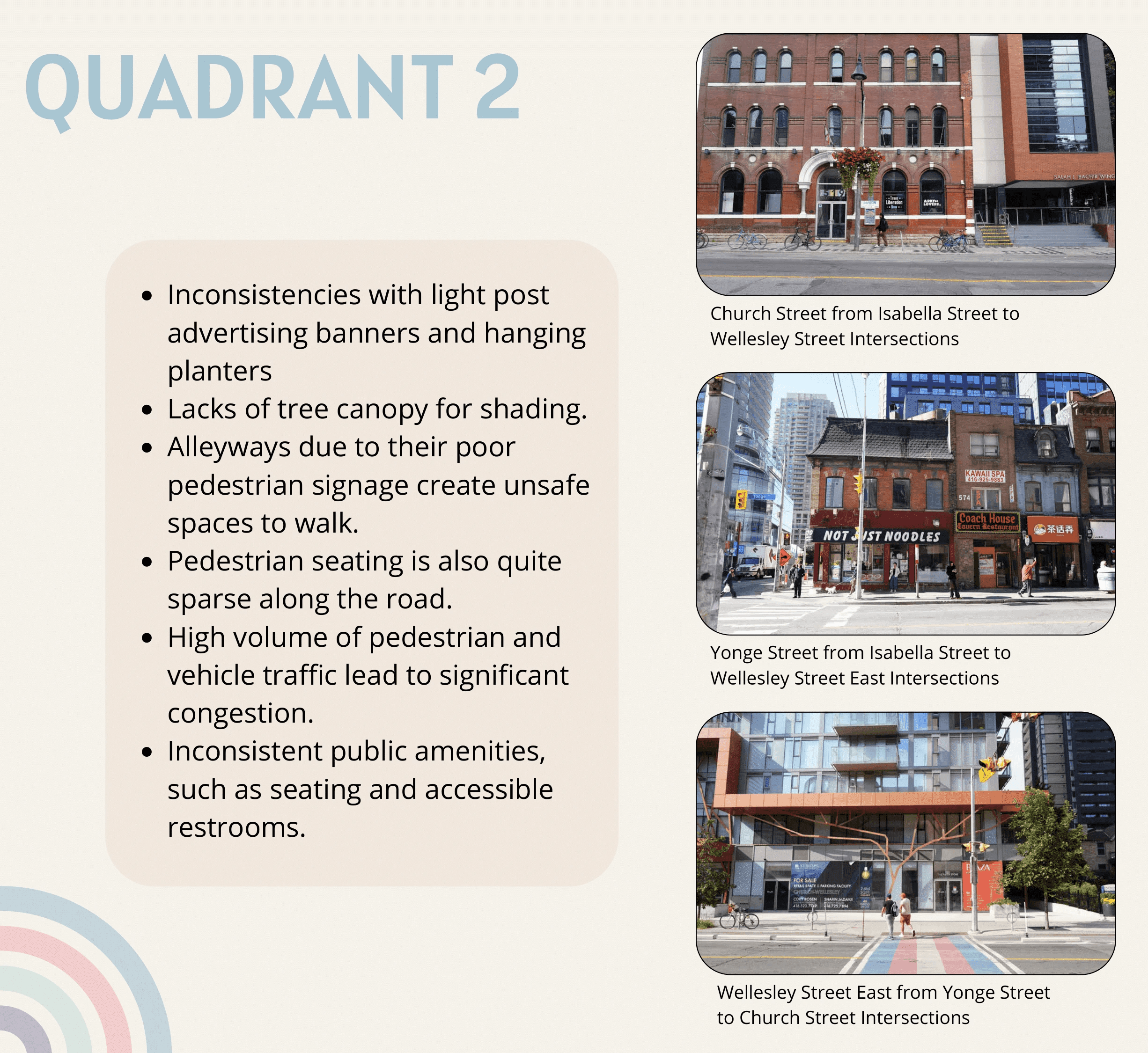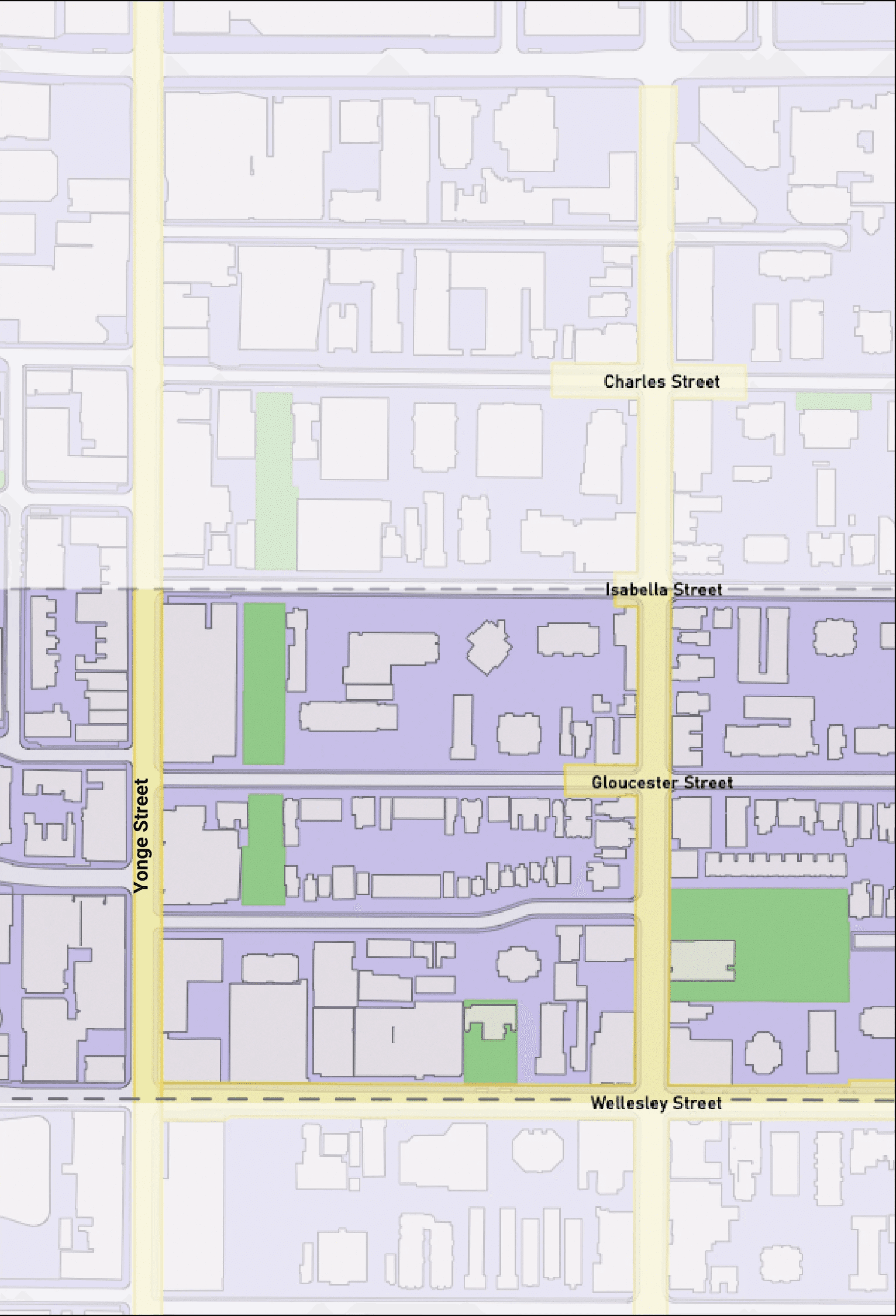Project Type
Architectural Interiors
Year
2016
Client /Professor
PrideTO | Professor Victor Amado-Perez
Role
Group Project, Urban Designer, Urban Planner
ABSTRACT
This project was developed as part of the PLG720 Urban Design Studio at Toronto Metropolitan University, in collaboration with Pride Toronto. Titled Beyond the Rainbow, the initiative explores inclusive urban design strategies that improve both accessibility and sustainability across large-scale public festivals. Rooted in participatory planning and extensive site research, the project focused on reimagining Toronto’s Pride Festival with holistic, actionable interventions. The work reflects our commitment to addressing systemic gaps in urban inclusivity through design, and represents a culmination of semester-long investigations into policy, site conditions, community narratives, and stakeholder interviews.
Full Report Link: Beyond the Rainbow | Urban Planning
PROJECT BRIEF
This collaborative studio project explores how the Pride Festival can be reimagined as a more accessible, inclusive, and sustainable public event through innovative urban planning and design strategies. Working in a multidisciplinary team of 12, the project challenges conventional festival layouts by drawing inspiration from global best practices and speculative design approaches to rethink how large-scale cultural events occupy and transform public space.
The proposal focuses on planning the entire festival ecosystem—from mobility and circulation to entrances, sensory experience, and environmental impact—ensuring that Pride remains welcoming to diverse bodies, abilities, and identities. Emphasis was placed on creating design recommendations that are visionary yet feasible, demonstrating how festivals can function as living laboratories for inclusive and sustainable urbanism while strengthening community connection and cultural expression.
DESIGN QUESTION
How can planners reimagine the Pride Festival to be physically and sensorially accessible, environmentally sustainable, and adaptable for future event planning—while effectively organizing mobility, entrances, circulation, and public space design?
DESIGN OBJECTIVES
Improve physical and sensory accessibility across festival routes and activity zones
Design inclusive circulation, mobility flow, and clearly defined entry points
Integrate sustainable strategies for temporary infrastructure and event operations
Use speculative and precedent-based design to inform practical planning recommendations
Support Pride as a safe, celebratory, and engaging public realm experience
DESIGN STRATEGY
Inclusive Mobility & Flow: Planning accessible routes, rest areas, and clear wayfinding to support diverse mobility needs
Sensory-Aware Design: Identifying zones with varied sensory intensity to accommodate neurodiverse participants
Sustainable Event Planning: Recommending low-impact materials, waste reduction strategies, and adaptable infrastructure
Collaborative Framework: Coordinating design ideas through shared research, mapping, and visualization tools.
PROJECT SCOPE & LIMITATIONS
The project was developed within an academic studio setting and focused on conceptual planning and design recommendations rather than detailed technical implementation. Outcomes were intended to demonstrate strategic thinking, collaboration, and inclusive planning principles applicable to real-world festival and public space design.
DESIGN OUTCOME
The project delivered a cohesive planning framework illustrating how the Pride Festival can be reimagined as an inclusive, accessible, and sustainable public event. Through a series of coordinated maps, diagrams, and visual perspectives, the proposal communicated a clear vision for celebrating Pride through thoughtful spatial organization, equitable access, and community-centered design.
The final outputs demonstrated how mobility flow, entry points, sensory zoning, and public space design could work together to support diverse bodies, identities, and experiences. Collectively, the visuals and planning recommendations showcased Pride not only as a festival, but as a spatial expression of community, equity, visibility, and belonging within the urban public realm.
Credits:
Client & Acknowledgments:
Pride Toronto – For project collaboration and provision of pre-research resources
Executive Director: Kojo Modeste
Instructor:
Professor Victor Perez-Amado
School of Urban and Regional Planning
Toronto Metropolitan University
My Role: Orcel Manalang – Design, Graphics, Research, Photographer, Gantt Chart Administrator
Team Members & Roles:
Nina Milinković – Overall Lead, Design, Graphics, Research
Niki Abdollahi Tanha – Research, Presentation Lead, Acting Project Manager
Aleks Kalinowski – Design, Graphics, Research, Mapping
Alex Ortiz – Research
Andres Larios – Research
Jacob Teodoro – Research
Kameron Hamlet – Design, Graphics, Research
Laurent Pastour – Research
Olivia Szuszkiewicz – Design, Graphics, Research
Will Ramalheiro – Mapping, Research






